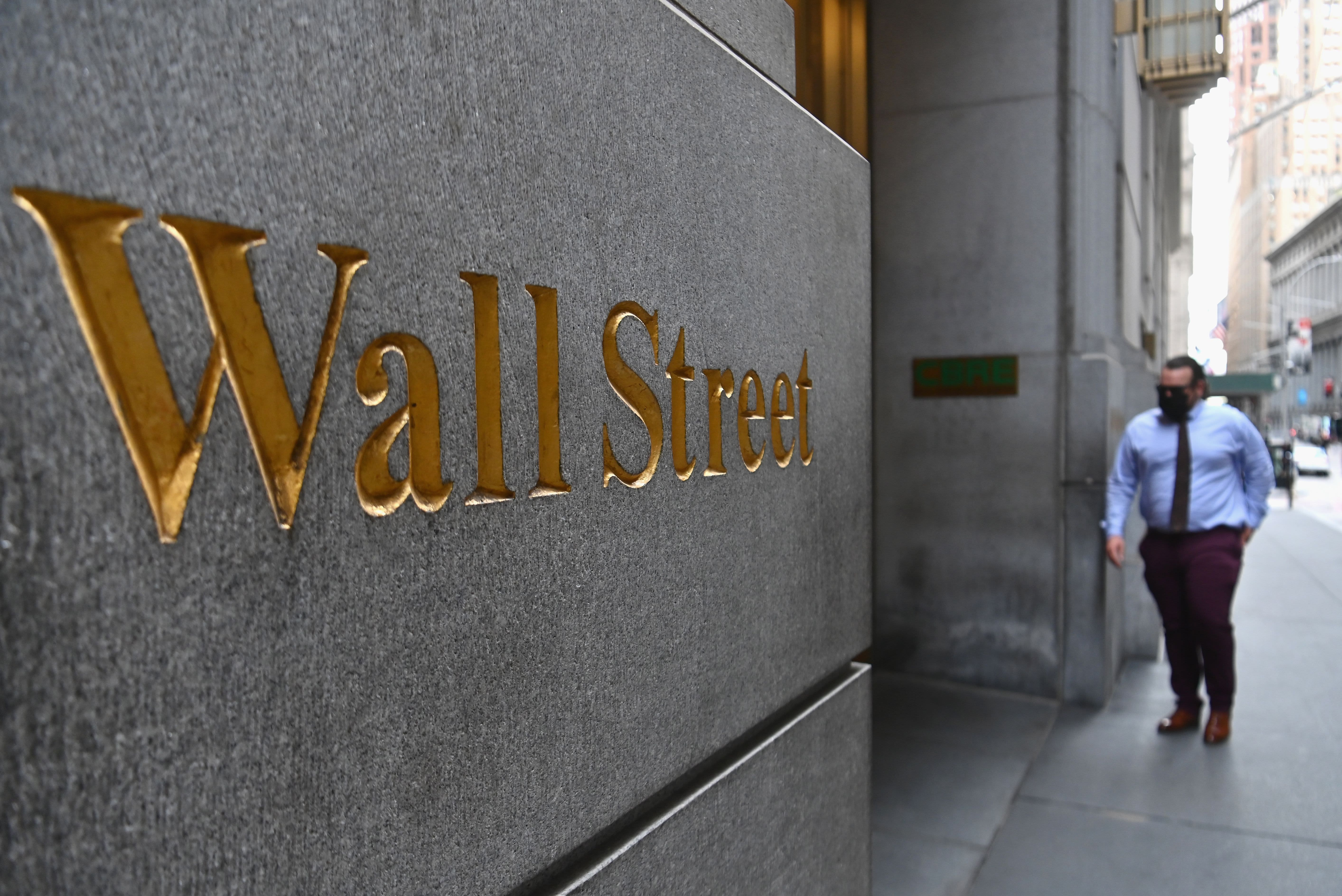A man walks near the New York Stock Exchange (NYSE) on August 31, 2020 at Wall Street in New York City.
Angela Weiss | AFP | Getty Images
Stock futures were flat in overnight trading on Sunday as the market tried to rebound from its worst week since March.
The move came as England adopted a stay-at-home order and as traders braced for Tuesday’s U.S. presidential election, where a contested fight for president or the Senate could delay a much-needed fiscal stimulus for the U.S. economy.
Futures on the Dow Jones Industrial Average were down by 30 points. S&P 500 futures and Nasdaq 100 futures were both little changed.
Prime Minister Boris Johnson announced Saturday England is closing all nonessential businesses for the next four weeks after more than 22,600 weekly Covid-19 cases were reported for the U.K., far higher than its first peak of 4,800 average weekly cases in the spring. People will be ordered to stay at home unless it’s for essential purposes, Johnson said.
The U.S. is also grappling with rising new coronavirus infections. The nation reported 99,321 new Covid-19 cases on Friday, beating its previous record set only a day prior, according to Johns Hopkins University. The top five records in daily cases have all been reported within the last eight days.
Ahead of Tuesday’s election, Joe Biden holds a substantial national lead over President Donald Trump. The former vice president garnered 52% of support from registered voters versus 42% for the president, according to a NBC News/Wall Street Journal poll from Sunday.
The Senate election could also be crucial for the markets as many key policy shifts including further fiscal stimulus hinge on who holds the majority control.
“The world is still largely in a holding pattern as investors await clarity on the U.S. election,” Adam Crisafulli, founder of Vital Knowledge, said in a note Sunday. “The world will likely be a lot clearer in just a few days thanks to the election being over, stimulus talks resuming in Washington, further central bank support.”
The blue-chip Dow just closed out October with a 4.6% loss, marking its worst monthly performance since March. The S&P 500 and the Nasdaq fell 2.8% and 2.3% last month, respectively, both suffering their second straight negative month.
The major averages are coming off their worst week since March 20 as coronavirus cases surged, fiscal stimulus negotiations fell apart and as shares of megacap tech companies including Apple and Amazon slumped following their quarterly earnings reports.
Volatility spiked to a four-month high during last week’s stock rout. The Cboe Volatility Index (VIX), also known as the market’s “fear gauge,” jumped above 40 briefly.
Some on Wall Street believe the sell-off leading up to Election Day gives the market less downside risk to a contested result.
“Even though we’re worried that there could still be one more wave down if we get another big influx of uncertainty, we think the stock market is now setting up nicely for a nice net advance over the next two months or so,” Matt Maley, chief market strategist at Miller Tabak, said in a note on Sunday.
Apart from the election, investors are faced with other key events later this week, including a Federal Reserve policy meeting and October’s jobs report.
Subscribe to CNBC PRO for exclusive insights and analysis, and live business day programming from around the world.
